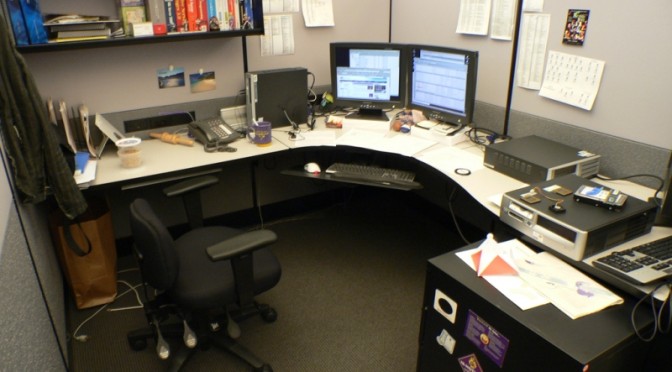
- SobControllers / Foter / CC BY
Businesses, big or small, can learn a lot from corporations’ mistakes whether that be from the products they sell and discontinue to the lack of innovation and change that consumers want to see. Some companies in the past were the cause of their own demise because they failed to listen to the consumer by not delivering what they wanted, giving the customer a worse product in the long run. The Battlefield franchise, makers of the Battlefield and Battlefield Bad Company games, is the best example for small businesses and how they must continue to provide quality products that consumers want and can’t get enough of.
As a former gamer who would play a few hours of Battlefield a night during my teen years, I’m quite familiar with the franchise as a loyal consumer. Battlefield Bad Company is still being raved about by fans nearly seven years after it was released in 2008, and the second installment has gotten just as much love, if not more. It’s been four years since the last Bad Company game, and since then consumers have been given subpar games, and worse then that, they’ve paid at least $100 if they wanted to become Premium members to get exclusive content and more maps to play on in multiplayer mode.
Recently the boss for Dice, the maker of the game, discussed with a gaming magazine as to why they haven’t released a Bad Company 3. The answer is rather shocking from a business perspective. The developers can’t understand why consumers loved the game so much. They’re not sure if it was the single player storyline, the characters in the game, or the fact that they’ve failed to replicate what they created for online usage.
My take: In general, since online gaming is what drives sales, single player story lines have become quite bland and boring, but not in Bad Company. The characters were funny, there was an actual storyline, and you had much more freedom on the maps than in the Battlefield games. The online play was crisp and fluid, rarely if ever were there glitches, never getting kicked out of a server due to lack of connection, and the gameplay was extremely fun and worth the time invested. Best of all, the online gameplay was so good it was worth forking out the extra cash to gain access to new game modes and maps.
What is so difficult about replicating and continuing the story? Since Battlefield 2 ends with the Russians advancing on the continental United States and the four main characters ready to take on the challenge there is a storyline for a third game.
As small businesses owners we have to listen to the consumer or we don’t eat or have a roof over our heads. The Battlefield franchise has been under fire (pardon the pun) for not delivering games worth playing to the consumer. According to bf4central.com, 7 million customers bought Battlefield 4, but today only 2% still play the game. That’s unacceptable in business terms. Recently the franchise released a beta version for a Battlefield where cops fight the war on crime. The beta was so bad, the game is now being postponed until sometime next year.
The consumers have spoken, and they want either a Bad Company 3 or something like it. Businesses, both large and small need to listen to their customers and provide the best products and services they have to offer. Gamers might be willing to pay an extra $60.00 for a premium membership if the game itself is premium.
In business you can’t ignore the customer, and that’s what they’re doing. If you have a great product why change it? The Ford Taurus was once the #1 selling car in the United States, after they changed the appearance sales figures plummeted. The gaming industry is no different. Either provide the customer with what they want, or go in a different direction and target another customer base. It’s impossible to run a profitable business if you fail to understand and listen to your customer.
Now it’s time to see what the Battlefield franchise is made of. If they don’t go back to their roots, customers will spend their money on a different war franchise that will listen to their wants and desires in a video game, both in single player and multiplayer modes.




